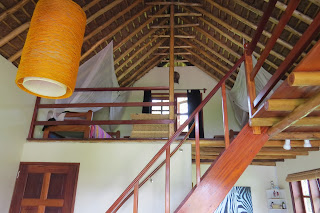If you had to choose, which would you rather have:
access to the Internet? Or access to a toilet (i.e. indoor plumbing)?
Yesterday the Washington Post published an article
stating that 4.4 billion people around the world still don’t have Internet. The thing about living abroad is that your
perspective changes, without you putting in any effort at all. Upon reading
that headline I immediately thought to myself: So what?! Several billion people
don’t have access to toilets! If I had
to choose one, I would opt for sanitation and hygiene over a virtual update of
Kimye’s most recent scandals any day.
I admit the Internet is useful. I no longer own a bound dictionary because I can
use dictionary.com. When I was learning
to drive a manual on the left side of the road, I watched youtube videos for
practice. And naturally, as a professor, I use the Internet every day before I teach
to see if there are any current events related to my class which I should
discuss with my students. Yes, the
Internet is great. But I don’t think the
fact that two-thirds of the world population is sans Internet is all that unfortunate. According to The World Bank, only 24% of Sub-Saharan Africa has electricity. You can’t have Internet without at least some
access to electricity. But Obama’s Power Africa initiative is a foolish endeavor (read: DISASTER) which I will
save to address a different day.
World Toilet Day is celebrated annually on November 19th
aimed at bringing attention to the need for behavior change and policy
implementation “to end open-air defecation.”
Currently, more than 2.5 billion people worldwide do not have access to toilets. This means
they have to relieve themselves in the open.
For those living in rural areas, individuals can try to find somewhere
secluded, but this is a security risk.
If you remember that rash of rapes and murders in India recently,
many of those occurred because girls had no access to latrines, forcing them to
go out into fields to relieve themselves, and there they were easy prey for violent
attacks. However, many of these people without access to toilet facilities don’t
live strictly in rural areas; many live in incredibly crowded slums in the
inner-cities.
When I was in Sierra Leone a few years ago I visited
Kroo Bay, one of the largest slums in Freetown, the nation’s capital. In one Kroo Bay neighborhood 15,000 people live
in very cramped quarters with access to four, FOUR (4!) toilets. Also, it should be noted these are long
drops, not toilets with running water.
If you are unfamiliar with a long drop please read my previous post here. If you would like to see some photos of the
Kroo Bay neighborhood, check out this BBC article (be sure to click through the pictures).
The lack of toilets, running water and sanitation is
why Africa has an Ebola problem. When I
was in Kroo Bay there was an outbreak of cholera, leprosy was rampant, and the
life expectancy was, and still is, 35 years.
Everyone is concerned about Ebola coming to America. The simple truth is, this should not be a
problem here and it should be halted immediately without significant concern.
As Americans we are fortunate. We have access to running water, thus we can
use flush toilets and wash our hands. We
wear shoes, therefore we don’t have to worry about walking around barefoot and
potentially stepping in someone’s bodily fluids and contracting a disease. And for the most part, we live in reasonable accommodations,
not cramped living quarters where we are subject to others’ illnesses due to
close proximity and the inability to quarantine ourselves (or others) when we
are sick.
So, back to the original question: Would you rather
have access to the Internet or to a toilet?
I know this may be a tough one for some of you, but try to consider the
facts I mentioned above.
Here is a picture I took when I was in Kroo Bay,
Sierra Leone. On the left side you can
see a child wearing a blue and white shirt squatting and going to the “toilet.” Also on the left you can see a woman standing
up (there is a man in jeans and a white and gray shirt behind her) who is doing
laundry in this creek. And then if you
look on the right side, there is a boy with a bag next to a set of stairs. Next to that boy you can see the back end of
a pig (black and white, or pink? legs and tail):













